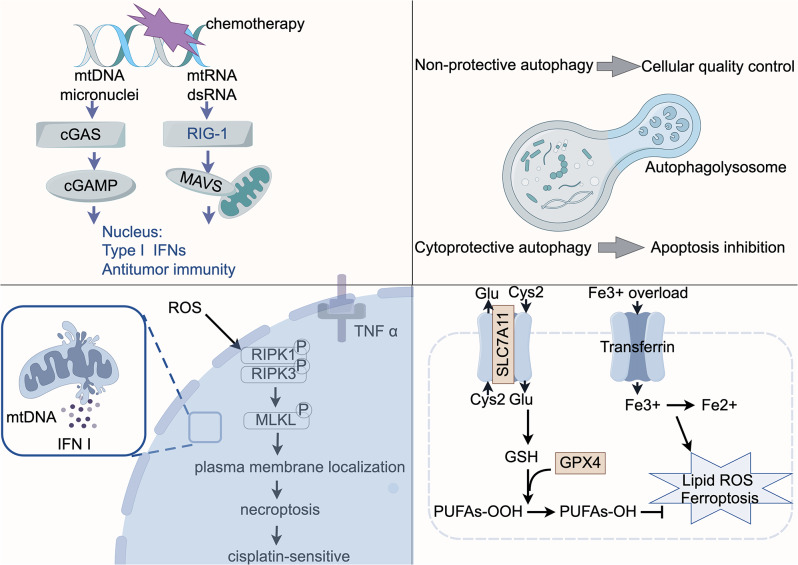Fig. 1.
Mitochondrial DNA (mtDNA) mutations affect the responsiveness of ovarian cancer cells to platinum-based drugs by modulating their interaction with the tumor microenvironment and the nucleus. Initially, mtDNA mutations in ovarian cancer cells disrupt their metabolism, resulting in increased metabolic flexibility and reliance on glutamate, and altered production of epigenetic modifiers. This metabolic imbalance alters the metabolic signaling to the nucleus and modifies the epigenetic profile of nuclear DNA, leading to chemoresistance. Additionally, the altered microenvironment can enhance the oncogenic effect of cells within the microenvironment, such as fibroblasts, and guide these cells to provide essential metabolites to cancer cells, thereby promoting the metabolic adaptation of ovarian cancer cells to platinum-based drugs. OXPHOS: Oxidative Phosphorylation; TCA: Tricarboxylic acid cycle; FFA: Free fatty acid; α-KG: α-ketoglutarate. Gln: Glutamine

